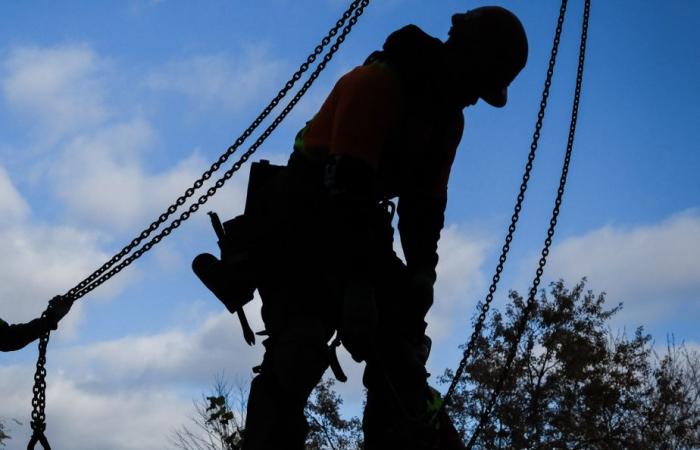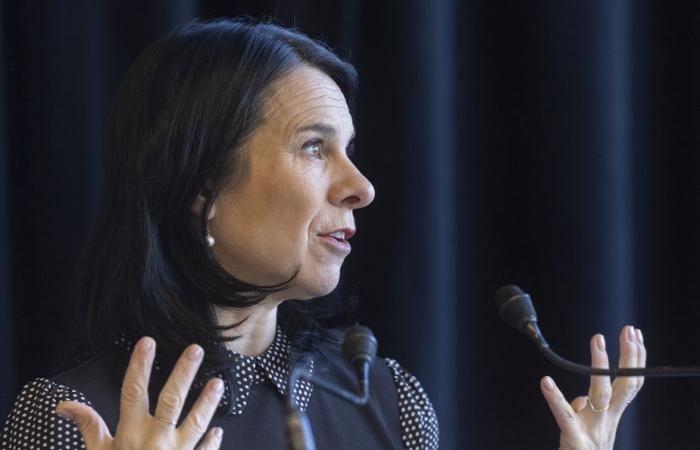Faced with a sharp increase in the delivery times for building permits in Montreal, the City will require the 19 boroughs to grant the required authorizations within a period of 120 days from January 2025.
Posted at 10:24 a.m.
This was indicated on Wednesday by the director of subsidy programs at the City’s Housing Department, Eric Gosset, during a presentation to the executive committee.
His group says it wants to offer “better predictability” to developers and individuals, in addition to speeding up the delivery of housing in general. Until now, there were no regulations governing the granting of permits, which meant that deadlines varied enormously from one sector to another.
The new standard will affect “residential projects as of right”, in other words all those which do not require regulatory authorization or exemption. This includes all construction projects with the addition of at least one dwelling, but not renovation requests, which represents roughly half of residential construction permits.
Last May, The Press revealed that the delays in obtaining a new construction permit have more than doubled in the city center and other boroughs since 2019.
Read the file “Endless delays”
On average, in 2023, the Ville-Marie district took, for example, 18 months to authorize new constructions, compared to 7 months before the COVID-19 pandemic. The wait was then even longer in Mercier–Hochelaga-Maisonneuve: more than 20 months on average last year.
“It’s not satisfactory, it’s unacceptable. I cannot accept as mayor of Ville-Marie nor as mayor of Montreal delays like these,” reacted Mayor Valérie Plante at that time. “It won’t stay like this. We know that we are capable of doing better than that,” she added.
PHOTO PATRICK SANFAÇON, LA PRESSE ARCHIVES
Valérie Plante, mayor of Montreal
Already six districts
To date, six districts of the metropolis have already implemented the measure since 1is last November, in the form of a “pilot project”, specified Mr. Gosset. These are Ville-Marie, Rosemont-La-Petite-Patrie, Le Plateau-Mont-Royal, Le Sud-Ouest, LaSalle and Verdun.
“Finally, we will have reliable data that we will be able to use, then compare with each other, between the districts,” reacted the president of the executive committee, Luc Rabouin. “It will be a stimulating challenge between us, a healthy competition between the boroughs to meet deadlines,” he added.
He maintains that with the arrival of the Urban Planning and Mobility Plan (PUM), through which the City wants to deliver more than 200,000 additional housing units and reach 20% “off-market” units by 2050, “ the 120-day standard will apply to a much larger number of projects starting next spring.”

PHOTO DENIS GERMAIN, LA PRESSE ARCHIVES
Luc Rabouin, president of the executive committee
Furthermore, data from the Strategic Planning and Organizational Performance Department (SPSPO) made public on Wednesday reveal that approximately 24% of the City’s assets are in poor or very poor condition. Conversely, nearly 74% of structures are in a condition considered satisfactory, good or very good.
In total, the replacement value – which is equivalent to the amount that would represent the replacement of assets at the end of their life – reaches approximately 77 billion in Montreal. This figure is 14 billion in Quebec.
The asset maintenance deficit, i.e. the sum of investments required in the shorter term to ensure the safety of structures, is around 10.5 billion. This amount includes both borough and city projects.
With Philippe Teisceira-Lessard, The Press








